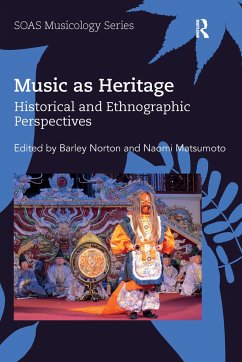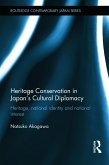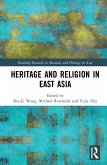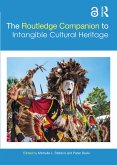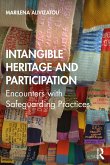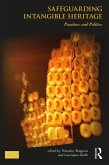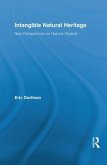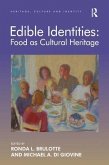As economic, technological and cultural change gathers pace across the world, issues of music heritage and sustainability have become ever more pressing. Discourse on intangible cultural heritage has developed in complex ways in recent years, and musical practices have been transformed by safeguarding agendas. Music as Heritage takes stock of these transformations, bringing new ethnographic and historical perspectives to bear on our encounters with music heritage. The volume evaluates the cultural politics, ethics and audiovisual representation of music heritage; the methods and consequences of music transmission across national borders; and the perennial issues of revival, change and innovation.
UNESCO's 2003 Convention for the Safeguarding of the Intangible Cultural Heritage provides an essential reference point for studies of music heritage. However, this volume also pays attention to important spheres of musical activity that lie outside of UNESCO's reach and the reasons why some repertories of music are chosen for safeguarding while others are not. Some practices of art music in Europe explored in this book, for example, have received little attention despite being susceptible to endangerment. Developing a comparative framework that cuts across genre distinctions and disciplinary boundaries, Music as Heritage explores how music cultures are being affected by heritage discourse and the impact of international and national policies on grass-roots music practices.
UNESCO's 2003 Convention for the Safeguarding of the Intangible Cultural Heritage provides an essential reference point for studies of music heritage. However, this volume also pays attention to important spheres of musical activity that lie outside of UNESCO's reach and the reasons why some repertories of music are chosen for safeguarding while others are not. Some practices of art music in Europe explored in this book, for example, have received little attention despite being susceptible to endangerment. Developing a comparative framework that cuts across genre distinctions and disciplinary boundaries, Music as Heritage explores how music cultures are being affected by heritage discourse and the impact of international and national policies on grass-roots music practices.
"With its critical interrogation of the very idea of music as heritage, as well as for its breadth in approach and balance, this fine essay collection stands out from the recent plethora of heritage scholarship. Alongside illuminating ethnographic case studies that reveal divergent perspectives on heritage safeguarding policies and their outcomes, a few chapters examine the use of video to represent musical heritage - a recent but understudied requirement of UNESCO inscription. Of special note is the volume's attention to so-called 'Western classical music', an arguably threatened sphere typically absent from heritage discourse, and its focus on musical creativity, improvisation and performance practice as aspects of heritage. Engaging and thought provoking; sure to be an important point of reference for music scholars."
Dr Henry Stobart, Royal Holloway, University of London.
"This important and timely book is a must-read. It will lead stakeholders and researchers in the fields of music and cultural policy to reconsider the significance of music as heritage and to creatively develop new methods of safeguarding intangible cultural heritage."
Tokumaru Yosihiko, Professor Emeritus at Ochanomizu University, Tokyo.
Dr Henry Stobart, Royal Holloway, University of London.
"This important and timely book is a must-read. It will lead stakeholders and researchers in the fields of music and cultural policy to reconsider the significance of music as heritage and to creatively develop new methods of safeguarding intangible cultural heritage."
Tokumaru Yosihiko, Professor Emeritus at Ochanomizu University, Tokyo.

